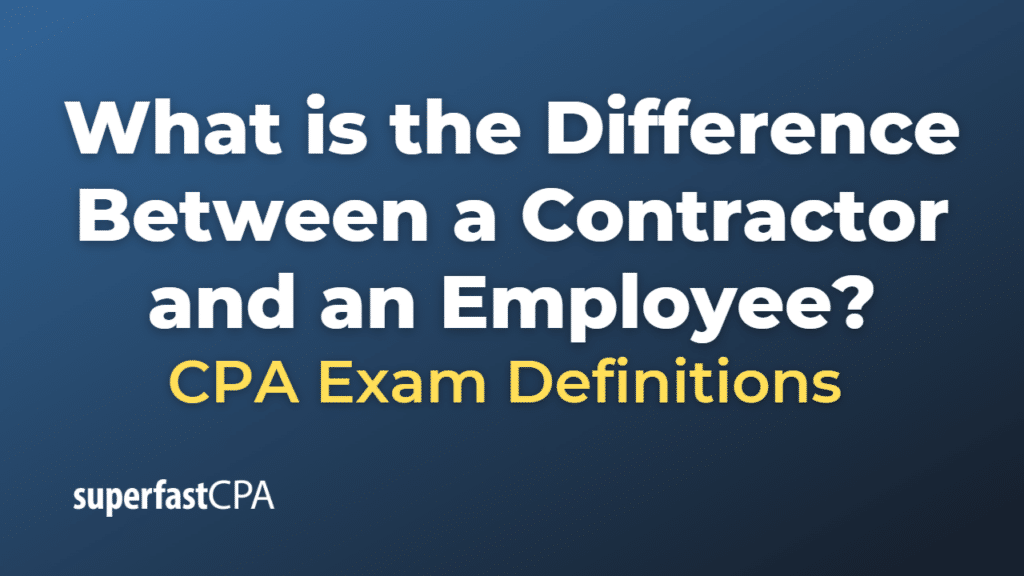Difference Between a Contractor and an Employee
Contractors and employees are both forms of work relationships between an individual and a company or employer, but they have different implications in terms of legal status, tax implications, benefits, and the level of control the company has over the worker’s activities:
- Employee: An employee is an individual who is hired by a company to perform specific duties in exchange for a salary or wages. Employees often work full-time (though part-time arrangements are also common), are subject to the company’s policies and procedures, and typically receive benefits such as health insurance, paid time off, and access to retirement plans. The employer withholds income taxes from the employee’s paycheck, contributes to Social Security and Medicare, and pays unemployment tax on wages paid. Employees are protected by various labor and employment laws, including minimum wage laws, overtime laws, and safety regulations.
- contractor: A contractor, also known as an independent contractor, is a self-employed individual who provides services to a company on a contractual basis. This could be on a project-by-project basis or for a specific period. Contractors are not considered employees of the company, and therefore do not receive the same benefits as employees. They have more control over their work, such as how and when they perform it. Contractors are responsible for managing their own taxes and business expenses. They are not covered by most employment laws that protect employees.
It’s important to correctly classify workers as employees or contractors because misclassification can lead to legal issues and financial penalties. Companies cannot simply choose how to classify a worker; the classification depends on the specifics of the worker’s role and relationship with the company, as defined by laws and regulations.
Example of the Difference Between a Contractor and an Employee
let’s consider a software development company, “CodeHive Ltd.”
Employee:
Maria is a software engineer employed by CodeHive. She works 40 hours a week at the company’s office, uses the company’s equipment, and follows the company’s prescribed work schedule. She earns a yearly salary and receives benefits such as health insurance, paid vacation, and access to a retirement plan. CodeHive withholds taxes from Maria’s paychecks and pays a portion of her Social Security and Medicare taxes. As an employee, Maria is protected by labor and employment laws, and CodeHive has a high degree of control over her work.
Contractor:
On the other hand, John is a freelance web designer who was hired by CodeHive to redesign the company’s website. John works from his own office, sets his own schedule, and uses his own equipment. He is paid a predetermined fee for the project, and no taxes are withheld from his payments. He’s responsible for his own business expenses and must pay his own self-employment taxes. John does not receive employee benefits from CodeHive, and he is not covered by most employment laws.
In this scenario, Maria is an employee and John is a contractor. Although both individuals provide services to CodeHive, their relationships with the company are different in terms of tax implications, benefits, the level of control over their work, and legal protections.













